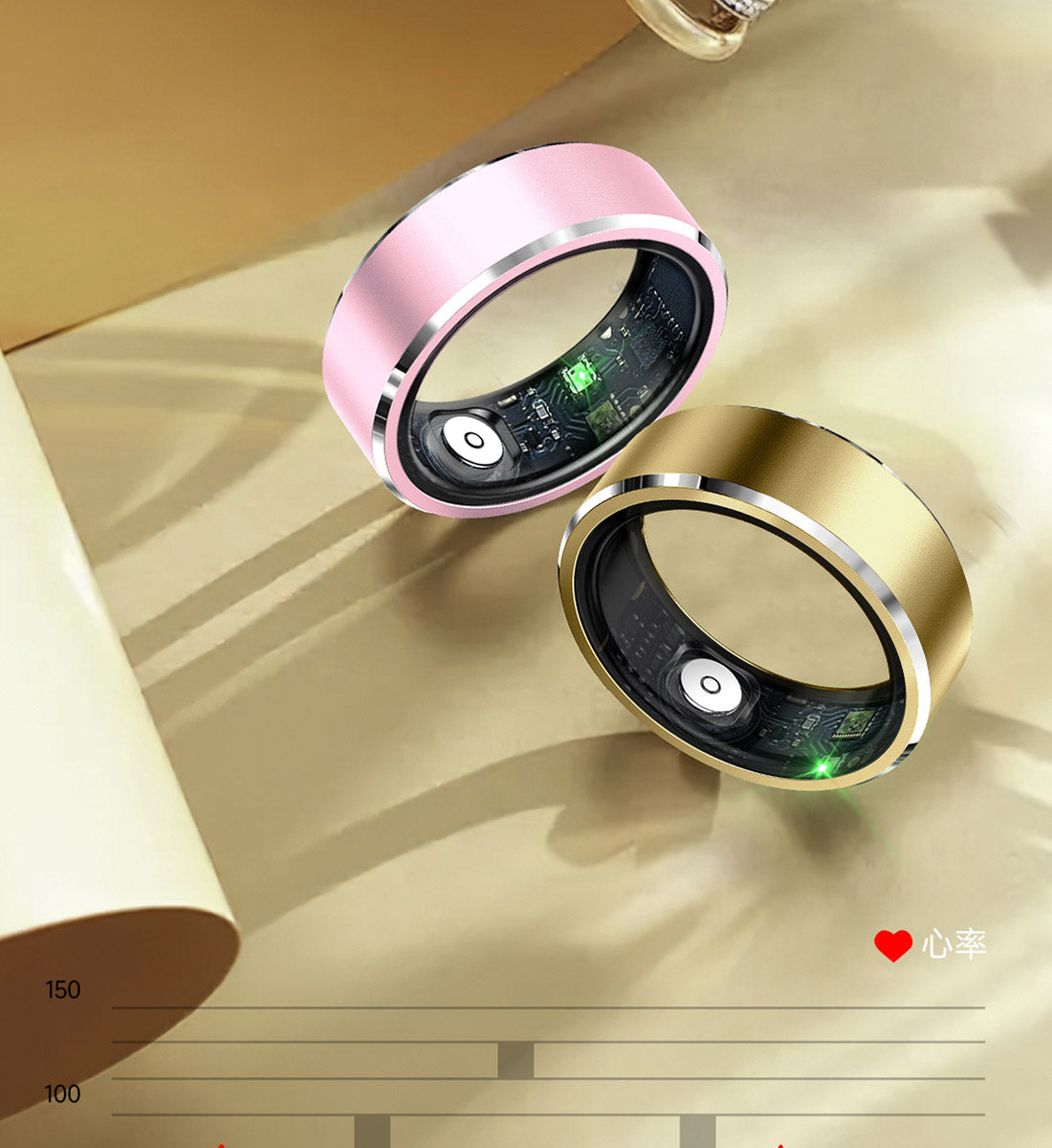In the ever-evolving world of wearable technology, two devices have emerged as frontrunners in the race to help us monitor our health and stay connected: smart rings and smartwatches. Both offer unique features and benefits, but how do you decide which one is right for you? In this blog, we’ll dive deep into the pros and cons of each, compare their functionalities, and help you make an informed decision based on your lifestyle, needs, and preferences.
What Are Smart Rings and Smartwatches?
Smart Rings
Smart rings are compact, lightweight wearable devices that fit snugly on your finger. Despite their small size, they pack a punch when it comes to health and fitness tracking. Most smart rings focus on monitoring metrics like heart rate, sleep quality, activity levels, and even stress levels. They are designed to be discreet, stylish, and comfortable for 24/7 wear.
Smartwatches
Smartwatches, on the other hand, are wrist-worn devices that combine the functionality of a traditional watch with advanced features like fitness tracking, notifications, GPS, and even mobile payments. They often come with larger screens, allowing for more interactive experiences, such as responding to messages or using apps.
Key Features Compared
1. Design and Comfort
Smart Rings:
Smart rings are minimalist and unobtrusive. They’re perfect for people who prefer a subtle, fashion-forward wearable that doesn’t draw attention. Their lightweight design makes them comfortable to wear all day and night, especially for sleep tracking.
Best for: Those who value discretion and comfort.
Smartwatches:
Smartwatches are bulkier due to their larger screens and additional hardware. While they’ve become more stylish over the years, they’re still more noticeable than a ring. Some people may find them uncomfortable to wear during sleep or intense physical activities.
Best for: Those who prioritize screen visibility and interactivity.
2. Health and Fitness Tracking
Smart Rings:
Smart rings excel in continuous health monitoring. They track metrics like heart rate variability (HRV), blood oxygen levels (SpO2), sleep stages, and body temperature. Their 24/7 wearability ensures you get a comprehensive picture of your health over time.
Best for: Individuals focused on holistic health and sleep improvement.
Smartwatches:
Smartwatches offer a broader range of fitness tracking features, including step counting, calorie burn, GPS for outdoor activities, and workout-specific modes (e.g., running, swimming, cycling). They also provide real-time feedback during exercise, thanks to their screens.
Best for: Fitness enthusiasts who need detailed workout data and guidance.
3. Battery Life
Smart Rings:
Due to their smaller size, smart rings have limited battery capacity. Most last between 3-7 days on a single charge, depending on usage. However, their charging cases are often compact and portable.
Best for: Those who don’t mind charging their device weekly.
Smartwatches:
Smartwatches typically have larger batteries but also consume more power due to their screens and advanced features. Most last 1-3 days, though some models (like Garmin watches) can last up to a week or more.
Best for: Users who prioritize functionality over battery life.
4. Notifications and Connectivity
Smart Rings:
Smart rings are primarily focused on health tracking and rarely support notifications or app integrations. If staying connected is a priority, a smart ring might not be the best choice.
Best for: People who want to disconnect from their phones and focus on health.
Smartwatches:
Smartwatches shine in this category. They allow you to receive calls, texts, emails, and app notifications directly on your wrist. Many also support voice assistants like Siri or Google Assistant.
Best for: Busy professionals or anyone who wants to stay connected on the go.
Use Cases: Who Should Choose What?
Choose a Smart Ring If...
- You want a discreet, lightweight wearable that doesn’t interfere with your daily activities.
- Your primary focus is on health and sleep tracking rather than fitness or connectivity.
- You prefer a minimalist design that complements your style.
- You’re looking for a budget-friendly health monitoring solution.
Choose a Smartwatch If...
- You need a versatile device that combines fitness tracking, notifications, and apps.
- You’re an active individual who wants detailed workout metrics and GPS tracking.
- You value real-time feedback and interactivity through a screen.
- You’re willing to invest in a premium, multifunctional device.
The Verdict: Which One Wins?
The choice between a smart ring and a smartwatch ultimately depends on your lifestyle and priorities.
Smart rings are ideal for those who want a simple, unobtrusive way to monitor their health and sleep without the distractions of a screen. They’re perfect for people who value comfort, style, and continuous health insights.
Smartwatches, on the other hand, are better suited for individuals who want a do-it-all device that keeps them connected, tracks their workouts, and provides real-time feedback. They’re a great choice for tech-savvy users who don’t mind the bulkier design.
Final Thoughts
Both smart rings and smartwatches have their strengths and weaknesses, and the right choice depends on what you’re looking for in a wearable device. If you’re still unsure, consider your daily routine, health goals, and budget.
Are you a fitness enthusiast who needs detailed workout data? Go for a smartwatch.
Are you someone who wants to improve their sleep and overall health without the fuss? A smart ring might be your perfect match.
Whichever you choose, both devices are powerful tools to help you lead a healthier, more connected life. The future of wearable tech is here – it’s just a matter of finding the right fit for you!



Leave a comment
This site is protected by hCaptcha and the hCaptcha Privacy Policy and Terms of Service apply.